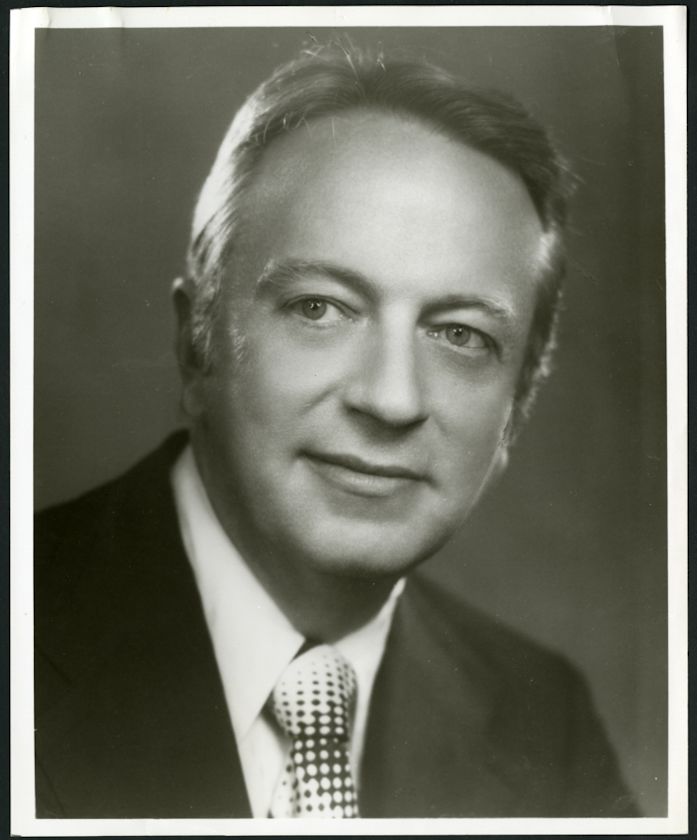

|
Paul Cooper (May 19, 1926; Victoria, Illinois – April 4, 1996; Houston, Texas) was an American composer and teacher of classical music. Born in Victoria, Illinois, Cooper received degrees from the University of Southern California, where his teachers included Ernest Kanitz, Halsey Stevens, and Roger Sessions. He also studied with Nadia Boulanger as a Fulbright Fellow from 1953-1954. Cooper taught at the University of Michigan School of Music and the University of Cincinnati College Conservatory of Music prior to joining the Rice University Shepherd School of Music as a founding member in 1974. He remained there until his death in 1996, at which time he held the Lynette S. Autrey Endowed Chair and was the Composer-in-Residence at the Shepherd School. In addition to a Fulbright, he was the recipient of a Guggenheim Fellowship as well as grants from the National Endowment for the Arts, the National Academy and Institute of Arts and Letters, and from the Ford, Rockefeller, and Rackham Foundations. While Cooper experimented with compositional techniques popular during the middle of the twentieth century, including serialism and aleatory, much of his music follows traditional structures, with numerous works in "absolute (established) forms," including six string quartets, numerous concertos (including two for violin, one for saxophone, and one for flute), and six symphonies. Ross Lee Finney characterized Cooper's music as having "a deep emotional motivation and at the same time a simplicity and clarity that comes from his mastery of craft." |
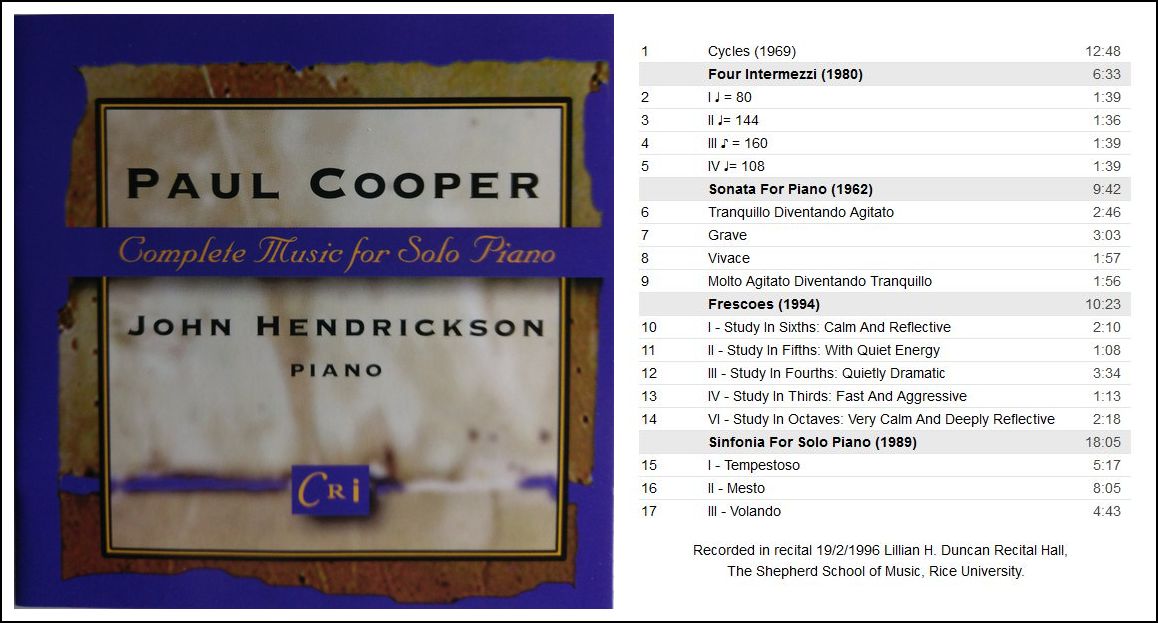
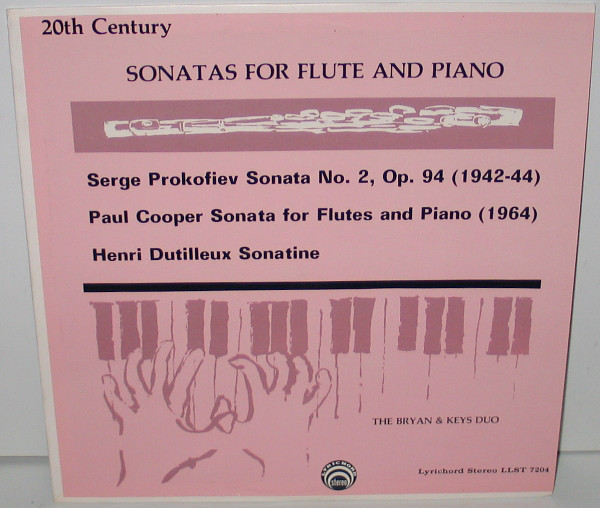 Composer Paul Cooper was in
Chicago in December of 1987, and we arranged to meet for a conversation.
He was on sabbatical, and our conversation was wide-ranging and filled
with laughter.
Composer Paul Cooper was in
Chicago in December of 1987, and we arranged to meet for a conversation.
He was on sabbatical, and our conversation was wide-ranging and filled
with laughter.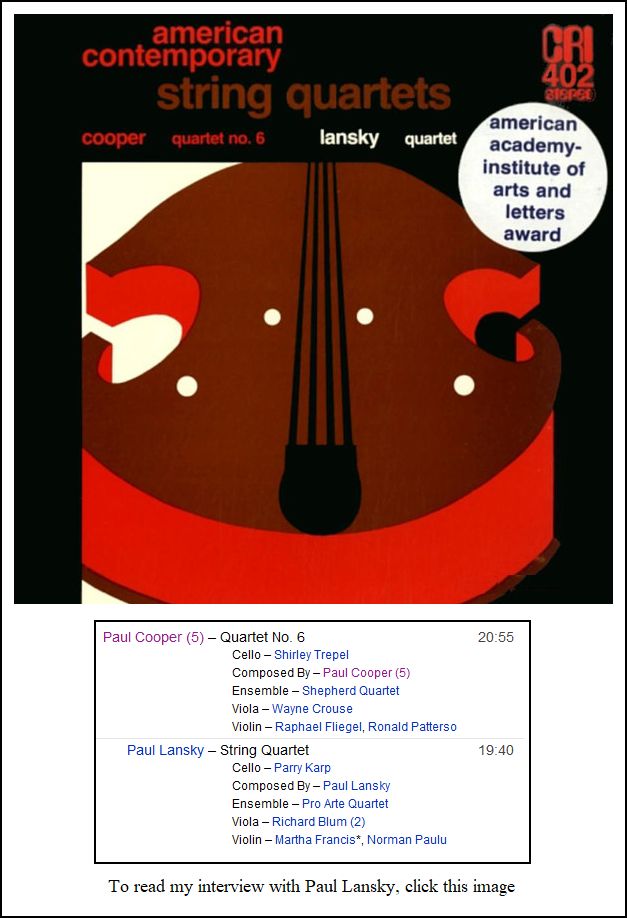 BD: Do you try to do the same thing?
BD: Do you try to do the same thing?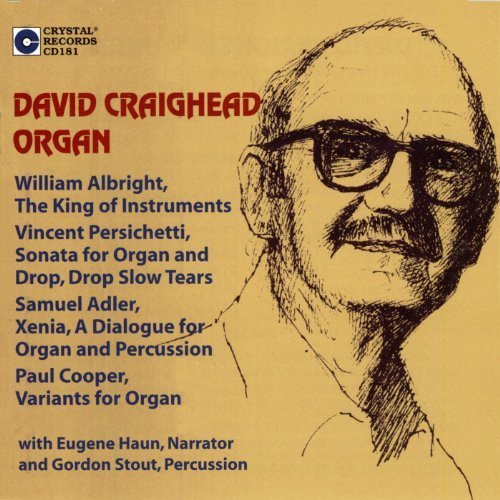 BD: Have you basically been pleased with the performances
you’ve heard of your music over the years?
BD: Have you basically been pleased with the performances
you’ve heard of your music over the years?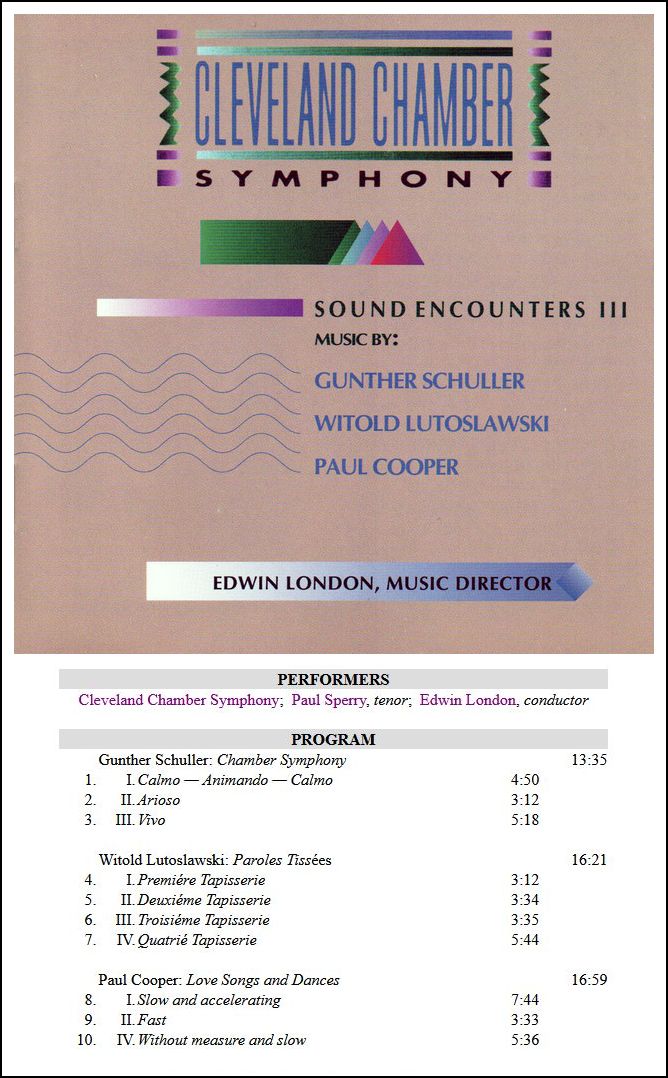 BD: We wouldn’t be arguing that it has two oboes and
a crescendo, rather than just one and a diminuendo?
BD: We wouldn’t be arguing that it has two oboes and
a crescendo, rather than just one and a diminuendo?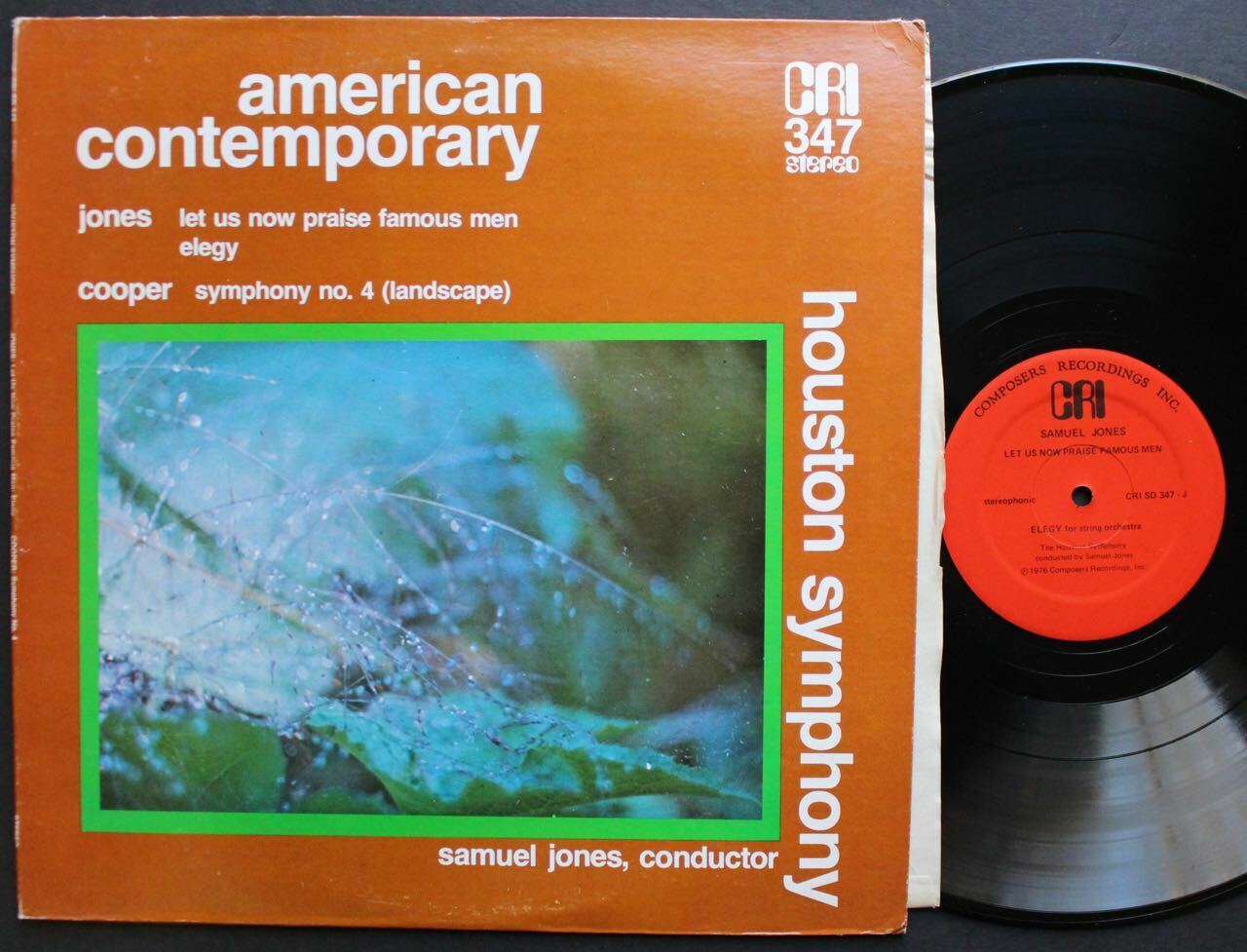
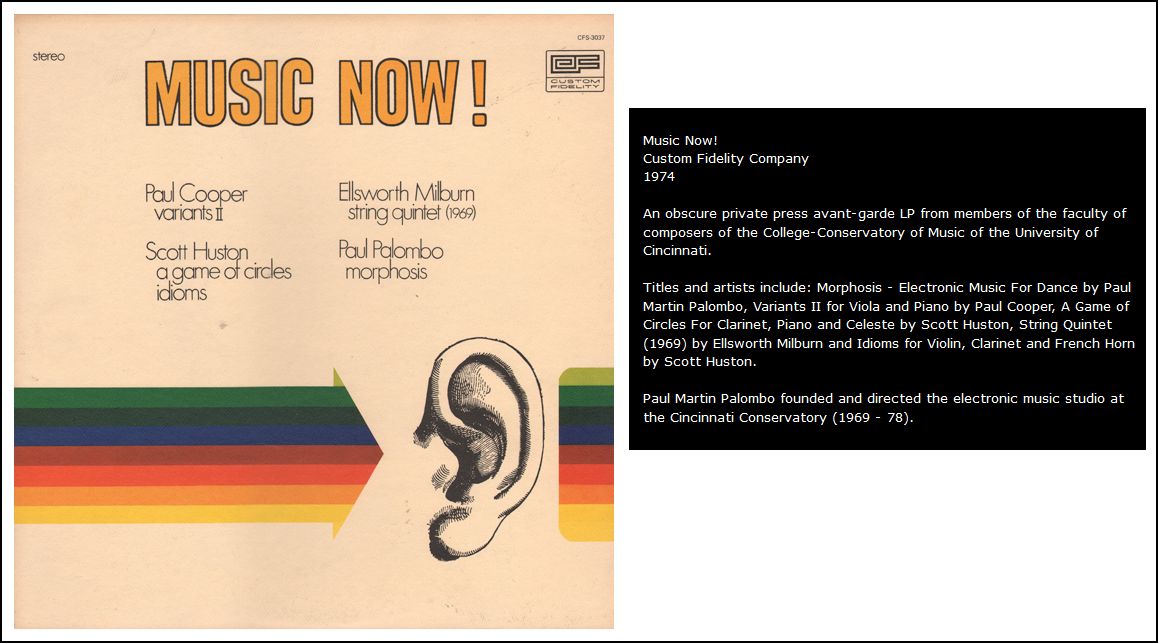
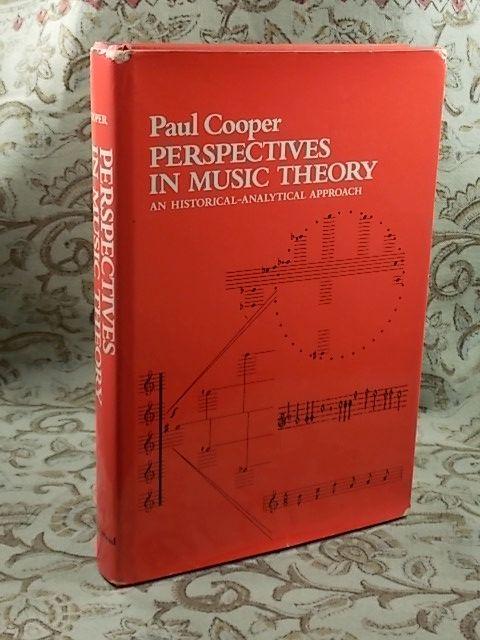 BD: Once you’ve got all the notes on
the paper, how do you know when you have finished the piece? How
do you know when you have to stop tinkering, and let it go?
BD: Once you’ve got all the notes on
the paper, how do you know when you have finished the piece? How
do you know when you have to stop tinkering, and let it go?| Johann Christoph Graupner (1683-1760) inadvertently
played a key role in the history of music. Precarious finances in Darmstadt
during the 1710s forced a reduction of musical life. The opera house
was closed, and many court musician's salaries were in arrears (including
Graupner's). After many attempts to have his salary paid, and having
several children and a wife to support, in 1723 Graupner applied for
the Cantorate in Leipzig. Telemann had been the first choice for this
position, but withdrew after securing a salary increase in Hamburg. Graupner's
"audition" Magnificat, set in the style of his teacher, mentor
and predecessor, Kuhnau, secured him the position. However, Graupner's
patron (the Landgrave Ernst Ludwig of Hesse-Darmstadt) would not release
him from his contract. Graupner's past due salary was paid in full, his
salary was increased, and he would be kept on staff even if his Kapelle
was dismissed. With such favorable terms, Graupner remained in Darmstadt,
thus clearing the way for Bach to become the Cantor in Leipzig. |
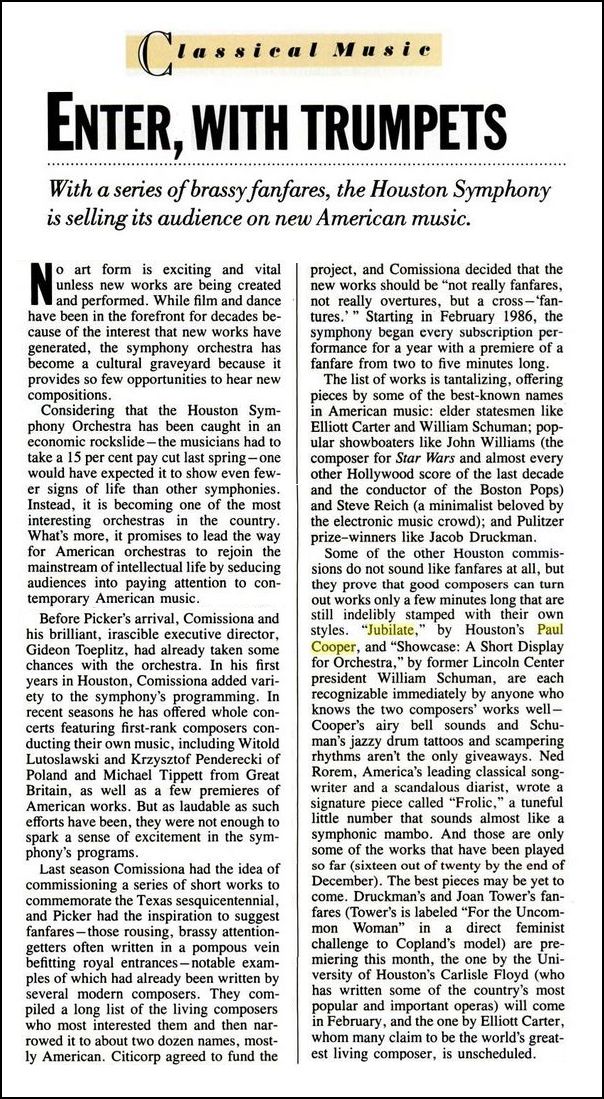 BD: Tell me about Jubilate.
BD: Tell me about Jubilate.[Note: The box at right contains excerpts from an article which appeared in Texas Monthly in January, 1987, by W.L. Taitte. Some material about the composer-in-residence Tobias Picker has been omitted. See my interviews with Sergiu Comissiona, William Schuman, Steve Reich, Jacob Druckman, Ned Rorem, Joan Tower, and Carlisle Floyd.]
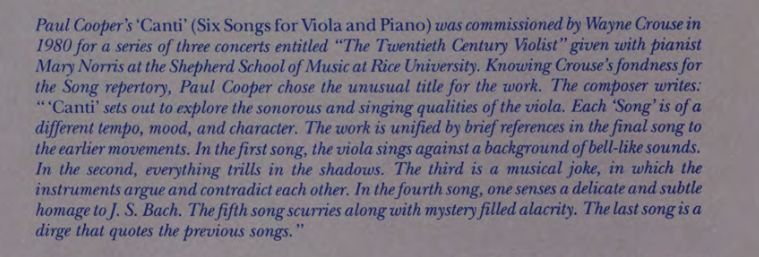 BD: Do you try for this in your music?
BD: Do you try for this in your music?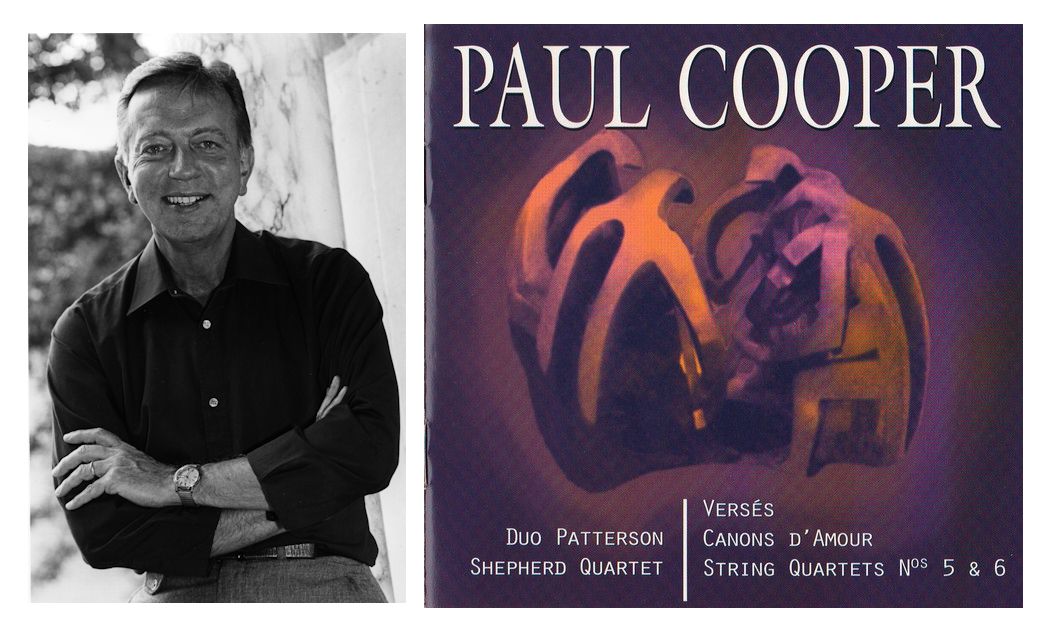
© 1987 Bruce Duffie
This conversation was recorded in Chicago on December 18, 1987. Portions were broadcast on WNIB four months later, and again in 1991 and 1996; on WNUR in 2007 and 2015; and Contemporary Classical Internet Radio in 2010. This transcription was made in 2020, and posted on this website at that time. My thanks to British soprano Una Barry for her help in preparing this website presentation.
To see a full list (with links) of interviews which have been transcribed and posted on this website, click here. To read my thoughts on editing these interviews for print, as well as a few other interesting observations, click here.
Award - winning broadcaster Bruce Duffie was with WNIB, Classical 97 in Chicago from 1975 until its final moment as a classical station in February of 2001. His interviews have also appeared in various magazines and journals since 1980, and he now continues his broadcast series on WNUR-FM, as well as on Contemporary Classical Internet Radio.
You are invited to visit his website for more information about his work, including selected transcripts of other interviews, plus a full list of his guests. He would also like to call your attention to the photos and information about his grandfather, who was a pioneer in the automotive field more than a century ago. You may also send him E-Mail with comments, questions and suggestions.